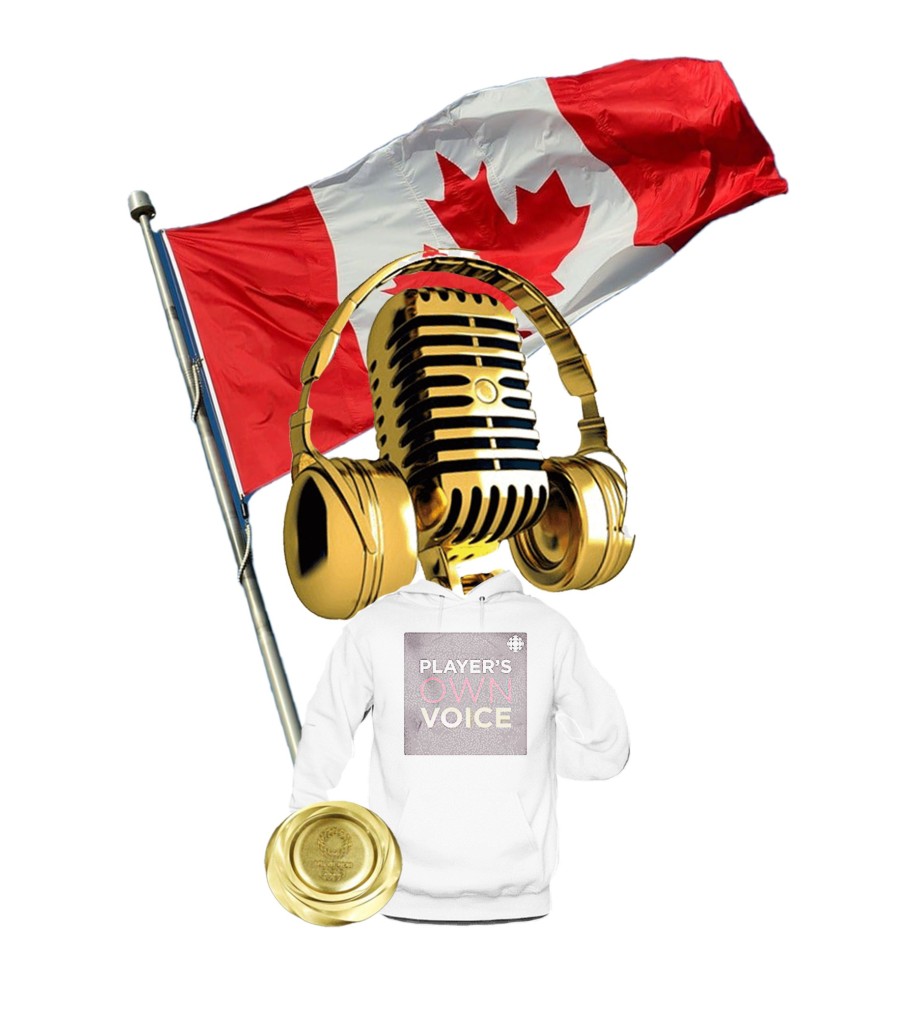
The podcast demystifies the romanticism behind the Olympics and addresses the ongoing tribulations of athletes.
Featuring Canada’s sports stars telling stories about their struggles, the Olympics, and perspectives on life
By Jonathan Pabico, Senior Columnist
If you have no plans to watch the Beijing Winter Olympics but are still an Olympics fan, check out CBC’s Player’s Own Voice podcast. Hosted by Anastasia Bucsis, who competed as a speedskater for Canada at the Olympics twice, the audio series has wholesome interviews with several Canadian athletic stars.
Bucsis is an attentive host who provides a light-hearted atmosphere for her guests in every episode. She asks enthusiastic questions and is enjoyably conversational, but she’s especially tactful when listening to an athlete uncovering personal details of their life and career.
As a Canadian Olympian herself, Bucsis knows what it’s like to experience the celebrity, victories, life lessons, and personal struggles of being a famous athlete. Understanding them this way shows not only how fitting she is in leading this program. Her empathy with her interviewees also reflects how she genuinely cares about and relates to them. The series creates a safe, relaxing space while treating listeners to a host of stories.
With every interview, Bucsis also has wickedly funny banter with her guests. She and her guests share anecdotes from the discomforts during training to quirky fun facts. A memorable highlight occurred when Bucsis and soccer star Christine Sinclair shared some laughs on the absurd experiences Sinclair had after suffering a nose injury during World Cup 2011. This camaraderie attests to how casual the host and guest are in sharing comical stages of their careers.
What the show also does so bravely is talk about more serious issues, which have defined the complicated realities of the sports world. The podcast demystifies the romanticism behind the Olympics and addresses the ongoing tribulations of athletes.
The podcast also covers guests’ pursuits beyond their careers related to improving the health of themselves and others. Cross-country skier Beckie Scott unpacks her work with Spirit North, an organization giving Indigenous kids better access to sports. Scott’s support for this program conveys the continual need to resolve the historical inequalities still felt by First Nation communities today.
Another significant topic that Bucsis explores is the mental health experienced by her guests. Famous figure skater, Kaetlyn Osmond, in one episode discusses her struggles as an introvert, her identity post-Olympics, and with body image that she continues to address every day. The host shares her own mental health from monotonous routines during the pandemic, all the while listening with such respect to Osmond’s story.
This transparency reveals not only how much an athlete endures privately when they’re not performing on screen. It also teaches listeners that it’s okay to be just as open with others about their mental health as well.
Another moving part of the podcast is the gratitude and love the guests always have for their parents. The program is truly generous in allowing its icons to happily reflect on the growth and values they learned from their family relationships. These bonds emphasize how central these support systems are for athletes.
Overall, Anastasia Bucsis’s Player’s Own Voice podcast presents its larger-than-life guests with a more humbling lens. Their stories—from their commitment to sports and family to be willing to speak up about their inner troubles—make every athlete even more relatable to fans. If you love the Olympics, this podcast is a relaxing and insightful experience. The audio series is still airing new episodes on CBC Listen.
